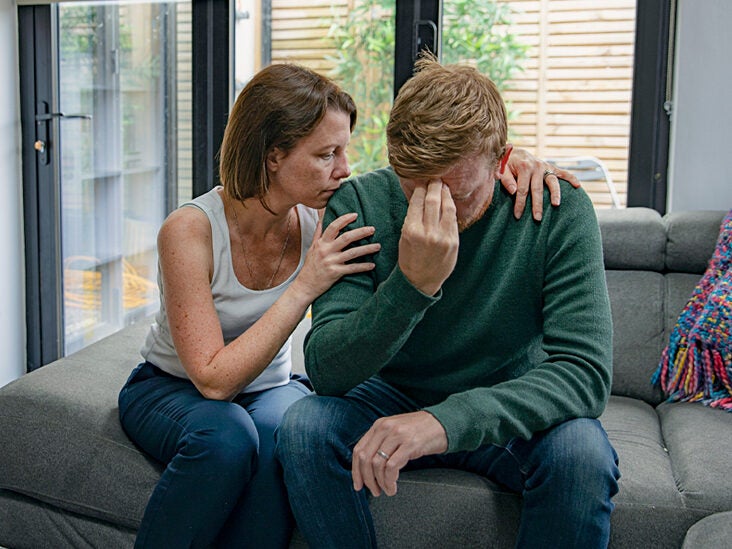Intimacy is a vital component of a fulfilling and healthy relationship. However, for many men grappling with erectile dysfunction (ED), it can pose significant challenges and strain on their emotional and physical well-being. The inability to achieve or maintain an erection can create frustration, self-doubt, and feelings of inadequacy, impacting both the individual and their partner. Fortunately, there are various strategies and solutions available to address ED and restore intimacy in relationships. In this article, we will delve into the challenges associated with ED and explore effective approaches to help individuals overcome this condition, fostering a renewed sense of intimacy and strengthening the bond between partners.
Understanding Erectile Dysfunction:
Erectile dysfunction (ED) is a common condition that affects men of all ages, causing difficulty in achieving or maintaining an erection during sexual activity. It can have a significant impact on a man's self-esteem, relationships, and overall quality of life.
ED can arise from various physical and psychological factors. Physical causes may include underlying medical conditions such as diabetes, heart disease, high blood pressure, hormonal imbalances, or side effects of certain medications. Psychological factors such as stress, anxiety, depression, and relationship issues can also contribute to ED.
It is crucial to have open and honest communication with your partner about ED. Recognizing that ED is a medical condition and not a reflection of masculinity or worth is important for both partners to understand. Discussing concerns, fears, and expectations can help alleviate stress and foster a supportive environment.
Seeking professional help is essential for understanding the root causes of ED and exploring appropriate treatment options. A healthcare provider specializing in men's sexual health can conduct a thorough evaluation, including medical history, physical examination, and possibly laboratory tests. They can provide personalized recommendations tailored to your specific situation, such as lifestyle modifications, medication, or therapy.
Remember, you are not alone in this journey. With understanding, support, and the right interventions, it is possible to overcome ED and restore a fulfilling and intimate relationship with your partner.

Seeking Professional Guidance:
When dealing with erectile dysfunction (ED), it is important to seek professional guidance from healthcare providers specializing in men's sexual health. They play a vital role in diagnosing and treating ED effectively.
A healthcare provider will begin by conducting a comprehensive medical assessment to understand your symptoms, medical history, and lifestyle factors. They may ask questions about your sexual health, overall health, and any medications you are currently taking. This information helps them identify potential underlying causes of ED.
In some cases, additional tests may be recommended to assess your overall health and identify specific factors contributing to ED. These tests may include blood tests to check hormone levels, cholesterol levels, and blood sugar levels. Other diagnostic tests, such as ultrasound or overnight erection testing, may be conducted to assess blood flow to the penis during sleep.
Based on the evaluation results, healthcare providers can develop a personalized treatment plan tailored to your needs. Treatment options for ED can vary depending on the underlying causes and individual circumstances. Medications, such as oral phosphodiesterase type 5 (PDE5) inhibitors, may be prescribed to enhance blood flow to the penis and facilitate erections. Other treatment options may include penile injections, vacuum erection devices, or surgical interventions for severe cases.
In addition to medical interventions, therapy and counseling can also be valuable in addressing psychological factors that may contribute to ED. Cognitive-behavioral therapy, couples therapy, or sex therapy can help improve communication, reduce anxiety, and enhance intimacy.
Lifestyle changes can play a significant role in managing ED. Healthcare providers may recommend adopting a healthy diet, engaging in regular exercise, managing stress, quitting smoking, and moderating alcohol consumption. These lifestyle modifications can improve overall health and contribute to better sexual function.
Remember, healthcare providers specializing in men's sexual health are there to support you throughout your journey. By seeking their guidance, you can explore treatment options, address underlying causes, and work towards overcoming ED for a more satisfying and fulfilling intimate life.
Psychological and Emotional Support:
Dealing with erectile dysfunction (ED) not only affects the individual experiencing it but also has emotional implications for both partners in a relationship. It is essential to address the psychological and emotional aspects of ED to foster understanding, empathy, and resilience in overcoming the challenges together.
ED can evoke a range of emotions, including frustration, disappointment, self-doubt, and even guilt. Both partners may experience feelings of inadequacy or blame themselves for the situation. It is crucial to recognize that ED is a medical condition and not a reflection of one's masculinity or worthiness.
Open and honest communication between partners is vital in navigating the emotional impact of ED. Creating a safe and non-judgmental space to discuss feelings, concerns, and desires can foster intimacy and strengthen the bond. Expressing empathy, understanding, and patience towards each other's emotions is key.
Seeking therapy or counseling can be immensely beneficial for couples dealing with the emotional challenges of ED. A qualified therapist or counselor can provide a neutral and supportive environment to explore the emotional barriers that may contribute to ED or impact the relationship. Therapy sessions can help uncover any underlying psychological factors, such as anxiety, stress, or past trauma, that may be affecting sexual intimacy.
Couples therapy or sex therapy can offer guidance and tools to improve relationship dynamics and enhance intimacy. These therapeutic approaches can help partners understand each other's needs and desires, develop effective communication skills, and explore alternative ways to experience pleasure and intimacy beyond penetrative sex.
In addition to professional support, engaging in self-care practices is crucial for managing the emotional impact of ED. This may involve practicing stress-reduction techniques such as meditation or mindfulness, engaging in activities that promote relaxation and self-esteem, and seeking support from friends, support groups, or online communities that focus on sexual health.
Remember, addressing the psychological and emotional aspects of ED is an important part of the healing process. By fostering understanding, empathy, and seeking professional support, couples can navigate the emotional challenges of ED together and find new pathways to intimacy and satisfaction.

Lifestyle Changes for Improved Sexual Health:
When it comes to addressing erectile dysfunction (ED) and improving sexual health, making certain lifestyle changes can have a positive impact. These changes focus on promoting overall well-being and creating a supportive environment for sexual function. Here are some key areas to consider:
-
Exercise: Regular physical activity plays a crucial role in promoting sexual health. Engaging in cardiovascular exercises, strength training, and pelvic floor exercises can improve blood circulation, boost energy levels, and enhance muscle tone, all of which contribute to better sexual function.
-
Diet and Weight Management: A healthy and balanced diet is essential for overall well-being, including sexual health. Incorporating a variety of fruits, vegetables, whole grains, lean proteins, and healthy fats can provide the necessary nutrients to support sexual function. Additionally, maintaining a healthy weight can help reduce the risk of ED and improve overall sexual performance.
-
Avoiding Risky Habits: Certain lifestyle choices can negatively impact sexual health. Smoking damages blood vessels and reduces blood flow, which can contribute to ED. Excessive alcohol consumption and illicit drug use can also interfere with sexual function. It is important to avoid or limit these habits to support optimal sexual health.
-
Stress Management: Stress and anxiety can significantly affect sexual performance and contribute to ED. Exploring relaxation techniques, such as deep breathing exercises, meditation, or yoga, can help reduce stress levels and promote a relaxed state of mind. Managing stress effectively can alleviate performance anxiety and enhance sexual experiences.
-
Open Communication and Intimacy: Building emotional intimacy and maintaining open communication with your partner are essential for a healthy sexual relationship. Creating a supportive and understanding environment where both partners can express their desires, concerns, and needs can foster a stronger emotional connection and enhance sexual satisfaction.
It is important to remember that lifestyle changes may not provide immediate results, and individual experiences may vary. If lifestyle modifications alone do not sufficiently improve sexual health or if there are underlying medical conditions contributing to ED, it is advisable to seek professional medical advice.
By adopting a healthy lifestyle, managing stress, and nurturing emotional intimacy, individuals can take proactive steps towards improving their sexual health and overall well-being. Remember, these changes are not only beneficial for sexual function but also for overall physical and mental health.
Exploring Treatment Options:
When it comes to addressing erectile dysfunction (ED), there are various treatment options available to help individuals regain sexual function and enhance their overall quality of life. Here are some common treatment approaches to consider:
-
Medications: Oral medications, such as sildenafil (Viagra), tadalafil (Cialis), and vardenafil (Levitra), are often the first-line treatment for ED. These medications work by increasing blood flow to the penis, facilitating erections. It is important to consult with a healthcare professional to determine the most suitable medication, dosage, and potential side effects.
-
Vacuum Erection Devices (VED) and Penile Implants: For individuals who do not respond to oral medications or prefer non-pharmaceutical solutions, vacuum erection devices and penile implants are alternative options. VEDs create a vacuum around the penis, drawing blood into it to achieve an erection. Penile implants involve surgically placing inflatable or malleable rods into the penis to create a rigid erection.
-
Alternative Therapies: Some individuals may explore alternative therapies as adjunct treatments for ED. Acupuncture, a traditional Chinese medicine practice, has shown promising results in improving erectile function. Additionally, certain herbal supplements, such as ginseng, L-arginine, and yohimbine, have been studied for their potential benefits in treating ED. It is important to consult with a healthcare professional before trying any alternative therapies to ensure their safety and efficacy.
-
Psychological Interventions: ED can have a psychological impact on individuals and their partners. In some cases, therapy or counseling may be recommended to address underlying psychological factors, such as performance anxiety, relationship issues, or stress. Cognitive-behavioral therapy (CBT) and couples therapy can help individuals overcome psychological barriers and enhance their sexual experiences.
It is essential to consult with a healthcare professional or specialist experienced in treating ED to determine the most suitable treatment option based on individual needs, medical history, and underlying causes of ED. They can provide personalized guidance, discuss potential risks and benefits, and help individuals make informed decisions about their treatment.
Remember, every individual's experience with ED is unique, and the effectiveness of treatment options may vary. Open communication with healthcare professionals and partners is crucial throughout the treatment process to ensure the best possible outcomes. With the right approach and support, individuals can overcome ED and regain a fulfilling and satisfying sexual life.

Enhancing Intimacy and Connection:
Erectile dysfunction (ED) can have a significant impact on the intimacy and connection between partners. However, there are various ways to maintain and even enhance intimacy while addressing the challenges of ED. Here are some strategies to consider:
-
Communication and Emotional Support: Open and honest communication is essential for navigating the emotional aspects of ED. Both partners should express their feelings, concerns, and needs, fostering understanding and empathy. This can help reduce anxiety and build a stronger emotional connection.
-
Intimacy-Building Exercises: Explore non-sexual intimacy-building exercises to foster closeness and connection. These can include activities such as cuddling, holding hands, sharing intimate conversations, or engaging in activities that bring joy and laughter. Remember that intimacy extends beyond sexual intercourse and can be nurtured in various ways.
-
Non-Penetrative Sexual Activities: Experiment with non-penetrative sexual activities that focus on pleasure and intimacy. This can include sensual massages, mutual exploration, kissing, and oral stimulation. By focusing on other forms of sexual pleasure, couples can maintain a fulfilling and satisfying intimate life.
-
Sensual Touch and Massage: Engage in sensual touch and massage to promote relaxation, intimacy, and arousal. Take the time to explore each other's bodies, paying attention to erogenous zones and discovering new sources of pleasure. Sensual touch and massage can be deeply intimate and create a sense of connection and pleasure.
-
Seek Professional Support: Consider seeking the guidance of a sex therapist or counselor who specializes in working with couples dealing with sexual challenges. They can provide expert advice, offer strategies tailored to the specific needs of the couple, and help navigate any emotional or relational issues arising from ED.
Remember, each couple's journey is unique, and what works for one may not work for another. It's important to explore and experiment with different approaches, adapting them to suit your individual preferences and comfort levels. The key is to maintain open communication, prioritize emotional connection, and find alternative ways to experience pleasure and intimacy while addressing the challenges of ED.
By approaching intimacy with patience, understanding, and creativity, couples can navigate the impact of ED together and strengthen their bond, ultimately leading to a more fulfilling and satisfying relationship.
Conclusion:
Overcoming erectile dysfunction requires a multi-faceted approach that combines medical intervention, emotional support, and open communication between partners. By seeking professional help, making necessary lifestyle changes, and focusing on emotional intimacy, couples can navigate the challenges of ED and unlock a deeper, more fulfilling level of intimacy. Remember, ED does not define a relationship; it is a temporary hurdle that can be overcome with patience, understanding, and a commitment to shared growth and intimacy.







